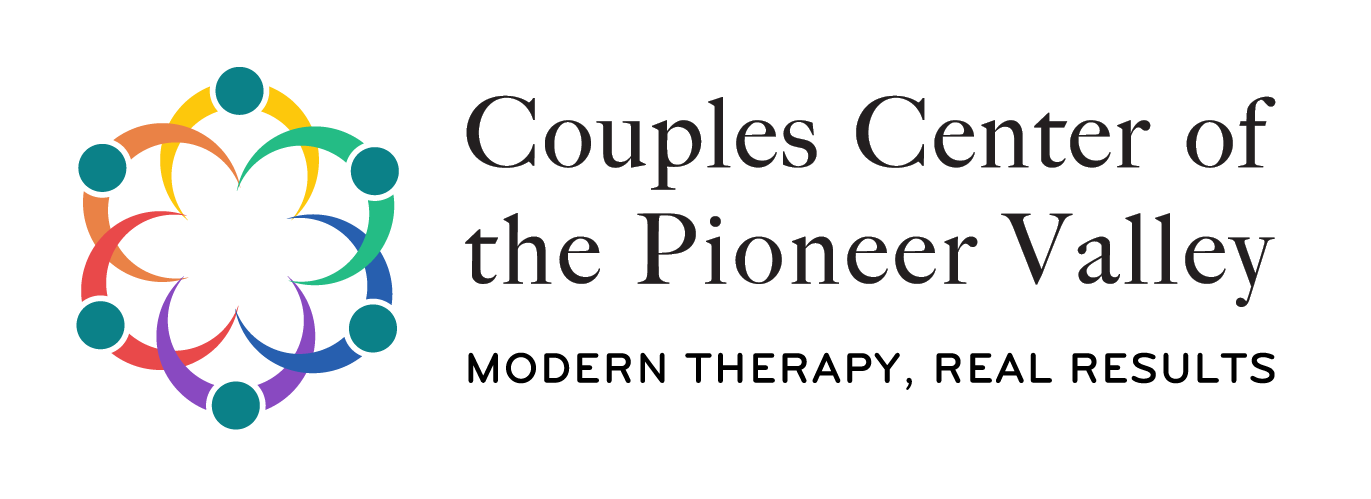Neuro-Divergent Affirming Couples Therapy
Written by: Erin Sprong Murrell, LMFT
What is Neurodivergent
Choosing our words carefully is crucial in the world of neurodiversity because language plays a significant role in shaping perceptions, attitudes, and inclusivity. Neurodivergent (aka neuro-diverse) is the term we use to identify individuals with neurological differences such as those who are diagnosed, or self identify with symptoms of ADHD, Autism, OCD, Sensory Processing Issues, or Learning Differences.
The Same But Different
Sitting in my office I am meeting a couple for the first time. Chris and Jesse let me know that they were there because they were struggling with communication and intimacy issues. Right out of the gate, it was quite apparent that there was another issue at play that had a major impact on their relationship satisfaction beyond their communication.
Chris began “I am sick and tired of handling everything”, “I feel like a nag, I want to be your partner, not your parent ”
Jesse stared at Chris, not knowing what to say. Finally Jesse turns to me “I’m not really good at responding. That's where I need help. I mean, I say sorry but it never works. I can’t communicate the way she wants me to.” As we continue to talk and get to know each other, I begin to recognize the tell tale signs that this couple might be struggling with some sort of neurodivergency.
“Are there any diagnoses that either of you have that would be helpful for me to know about?” I ask.
Chris chimes in “Yes, Jesse has ADHD”.
“Thank you for letting me know about Jesse” I say. “I am actually wondering if you can tell me if there are any diagnoses you have. Jesse can tell me about theirs”
Chris looks a little stunned, “Me? No. My mom has undiagnosed depression and anxiety, if that helps.”
“Thank you. That is helpful to know”. I replied. “Jesse Chris said you have ADHD. Is that true?”
“Yeah. I got a diagnosis a few months ago, but I don’t see how that matters. This is about our relationship isn’t it. I just want to know what I can do to fix it”.
And there it is. Chris and Jesse are in a neurodivergent relationship, but they have the expectations that they both should be acting neurotypical.
Left unaddressed, Attention Deficit/Hyperactivity Disorder, also known as ADHD, becomes a silent player in relationships, creating tension, shame and disappointment. Partners can become cemented into a discouraging pattern with one partner over functioning, while the other is stuck feeling they are broken and incapable. In Chris and Jesse’s cas they were stuck in what I refer to as the CHORE WARS, and it was wreaking havoc on their relationship satisfaction and intimacy.
The Pitfalls of Traditional Couples Therapy with ND Relationships
Reaching out for support, couples with one or more neurodivergent partner are often met with miscommunication and misinformation that is unproductive at best and harmful at worst. Choosing to focus on “communication skills” couples might choose to see a therapist who does not include ADHD in their scope of practice. This type of therapy may not address neurodivergent (ND) symptoms, choosing instead to refer the ND partner to individual therapy. This can lead partners to navigate their relationship together and within therapy with a big piece of the picture missing. It has been found that neurodivergence left unaddressed in relationships is directly associated with elevated levels of relational stress and can cement partners in a reactive cycle keeping them stuck.
The second is an unproductive type of therapy which focuses on behavioral changes to support a neurodivergent partner to take accountability and change to function more neurotypical. Without the tools to understand and constructively deal with neurodiversities, symptoms and partners' unique differences can be interpreted negatively by the therapist, the partner and the ND individual. Couples are left feeling hopeless to create the relationship with themself and their partner that they desperately desire.
Finally the most harmful therapy is the one that perpetuates misinformation. Working with untrained therapists they may receive outdated and harmful information. One such couple found their way to my office after receiving feedback from their previous therapist. The couple was told proceeding with couples therapy would be difficult because the ND partner cannot feel empathy and may not be able to truly love. This is dangerous feedback because it is simply not true. Neurodivergent relationships both partners are fully capable of empathy and love. The unique experience of ND relationships is that each person experiences, processes, and emotes their feelings differently.
What is Neurodivergent Affirming Couples Therapy (NDACT)
The foundation of NDACT focuses on building connections through the exploration of each person’s unique differences. Our specialized NDAC therapists begin by recognizing the impact of neurodivergent in a relationship is not confined to the individual alone. Each couple is provided a structured approach designed specifically to meet the particular needs of your ND relationship. Work begins by exploring the unique challenges couples face being neurodivergent in a world and systems set up to enable the more neurotypical brains. Couples are supported to address and heal the root cause of their particular trauma cycle, and build connections around the distinct differences each person brings to the relationship.
NDCT in Action
Let’s revisit Chris and Jesse’s experience three months after working with an NDACT therapist. The couple reported being able to better understand how their looping fights were related to unmanaged ADHD in their relationship. After 6 months Jesse was able to move away from the shame of being Neurodivergent in a neuro typical world, allowing Chris the space to transform resentment and complaints about unmet expectations into a vulnerable self expression. Both partners were able to better manage the anxiety and tension of their differences and highlight their divergencies as a strength. Did the laundry still get forgotten in the washing machine sometimes? Yes it did. But Chris and Jesse were able to manage that as an annoyance and build a connection where there was one chaos and disconnection.
At the end of therapy Jesse shared their gratitude. “I can’t thank you enough. This experience has been so unique. We have been trying for so long and have been to three different couples therapists. All the work we did just got me more stuck trying to fix myself to be something that my partner wanted. Working with you over these last few months we have been able to break free from that stuckness (we still get stuck sometimes) and get the connection we wanted. Your perspective was just what we needed. I can’t thank you enough.”
**** Not all symptoms are neuro-divergences. **** As a couples therapist I have often heard complaints and attempts to diagnose partners, hearing feedback back such as “My partner is unable to be empathetic, they must be “on the spectrum”, or “my partner won't help with chores, they must be ADHD”. While partner feedback can be helpful with diagnosing neuro divergences in adulthood, it is important to note that your personal experience with your partner is subjective. Diagnosis of neurological differences needs to be persistent and impact a person's life beyond struggling with conflict in their relationship. If you feel you or your partner is struggling with symptoms linked to neurological differences we encourage you to reach out for support and encourage you or your partner to seek a professional diagnostic assessment.



